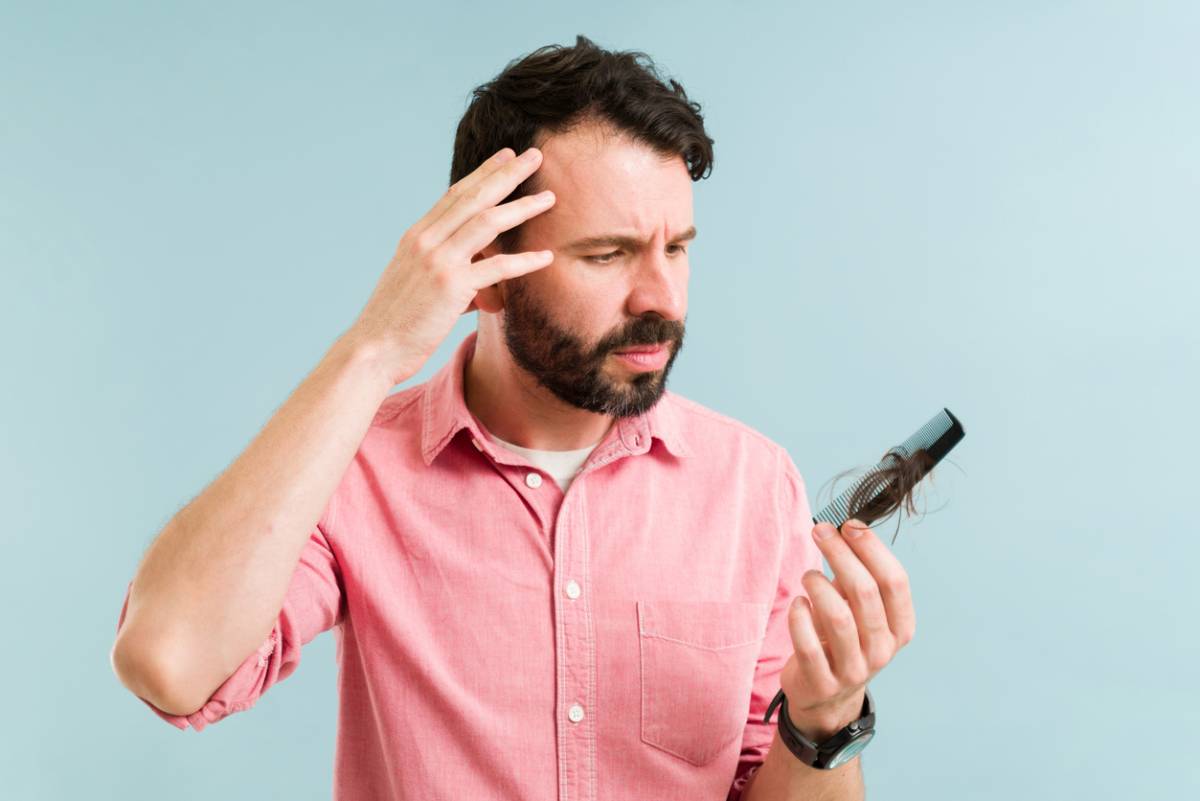There are many common myths and misnomers about what causes hair loss, but these stories are often debunked. Many patients believe that consistent hat-wearing, for example, can cause hair loss on the scalp over time.
This is definitely not true – but do you know what is true?
At Denver Hair Surgery, we feel our patients should be informed about the most surprising causes of hair loss, as well as the best methods for preventing any of these causes from happening. Keep in mind that hair loss is not just applicable to the scalp; in fact, hair loss can happen all over the body.
1. Low Levels of Iron
If your body is running low on iron, it may show up in the form of hair loss. Iron is one of the most essential components for the body, helping the blood transport oxygen and produce hemoglobin. Hemoglobin is needed by hair follicles in order to continue growing. If you have a low iron count in the body, your hair follicles will have trouble staying healthy, which can result in your hair thinning and eventually falling out.
If you are iron deficient, you can get tested and take supplements to help raise your levels of iron again.
2. Too Much Styling
While hair loss can’t be caused by wearing too many hats, it can be caused by styling it too much. If you use a lot of straighteners, blow dryers, and other heated devices on your hair every day, it can cause the follicles to weaken. Your hair is at risk of becoming brittle, which makes it fall out more easily.
You are also at risk if you use a lot of hair pastes and waxes, as the chemicals can be abrasive to the hair. Mayo Clinic warns against using too many chemicals, especially if it causes scarring to the scalp, which is an irreversible symptom of hair loss.
3. Hormonal Imbalances
Hair loss might be a result of a hormonal imbalance in the body. In females, the condition known as PCOS affects the ovaries and causes an increase in the growth of bodily hair. This can simultaneously decrease the amount of hair on the scalp. Menopause also contributes to hair loss if there are major imbalances occurring. The best way to prevent this is to check in with your doctor on a regular basis and invest in hormone supplements to keep the body balanced.
4. Autoimmune Problems
If you are suffering with an autoimmune disease, you may be experiencing hair loss as one of its symptoms. Autoimmune diseases define conditions in which the immune system accidentally attacks healthy cells, rather than harmful ones, in your body. While not all autoimmune problems cause hair loss, most thyroid disorders tend to have this symptom. You can invest in one of our progressive hair loss treatments to ensure that you don’t lose your hair as you battle with your disease.
5. Age
Unfortunately, some issues just come with age. Many people experience hair loss on the scalp as a result of age and gradually declining health.
However, it’s important to know that hair goes through a natural cycle of growth and loss, so not all hope (or hair!) is lost. For those experiencing hair loss as a sign of aging, and those who do not wish to have a surgical procedure, there are medical hair loss options available to help you maintain a full head of hair.
6. Stress
Everyone faces stress in their lives, but too much stress can put a strain on the body. There are many physical symptoms that accompany stress, one of which is the thinning or falling out of the hair. Stress may force the hair follicles to stop growing, prematurely ending your growth and loss cycles. If you can work on reducing your stress, this issue will likely reverse itself naturally.
Get Your Hair Loss Treatment Now
Thankfully, with the advent of surgical and non-surgical hair treatments, our professionals can offer a variety of solutions to help you solve the problem of hair loss. If you are having problems with your hair thinning or falling out, you should schedule an appointment with us right away. Contact us online or give us a call at (720) 759-2124 to speak with a representative.






 Schedule your Consultation Today
Schedule your Consultation Today